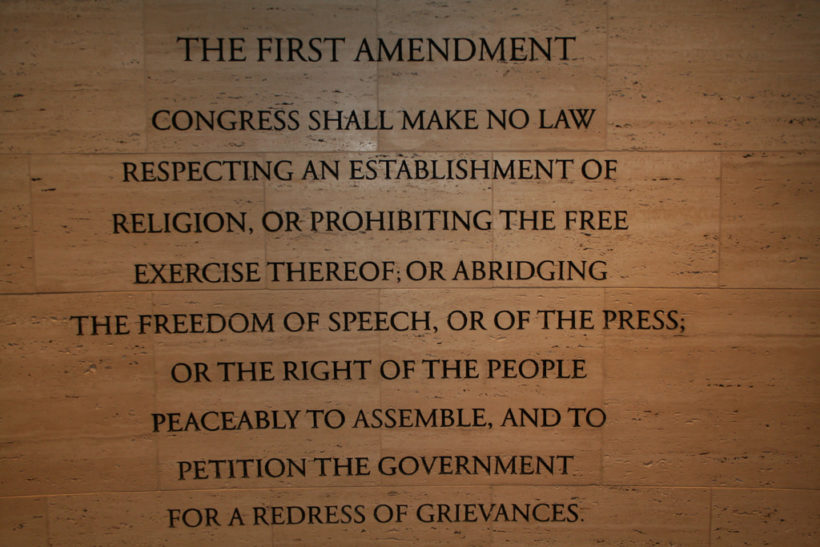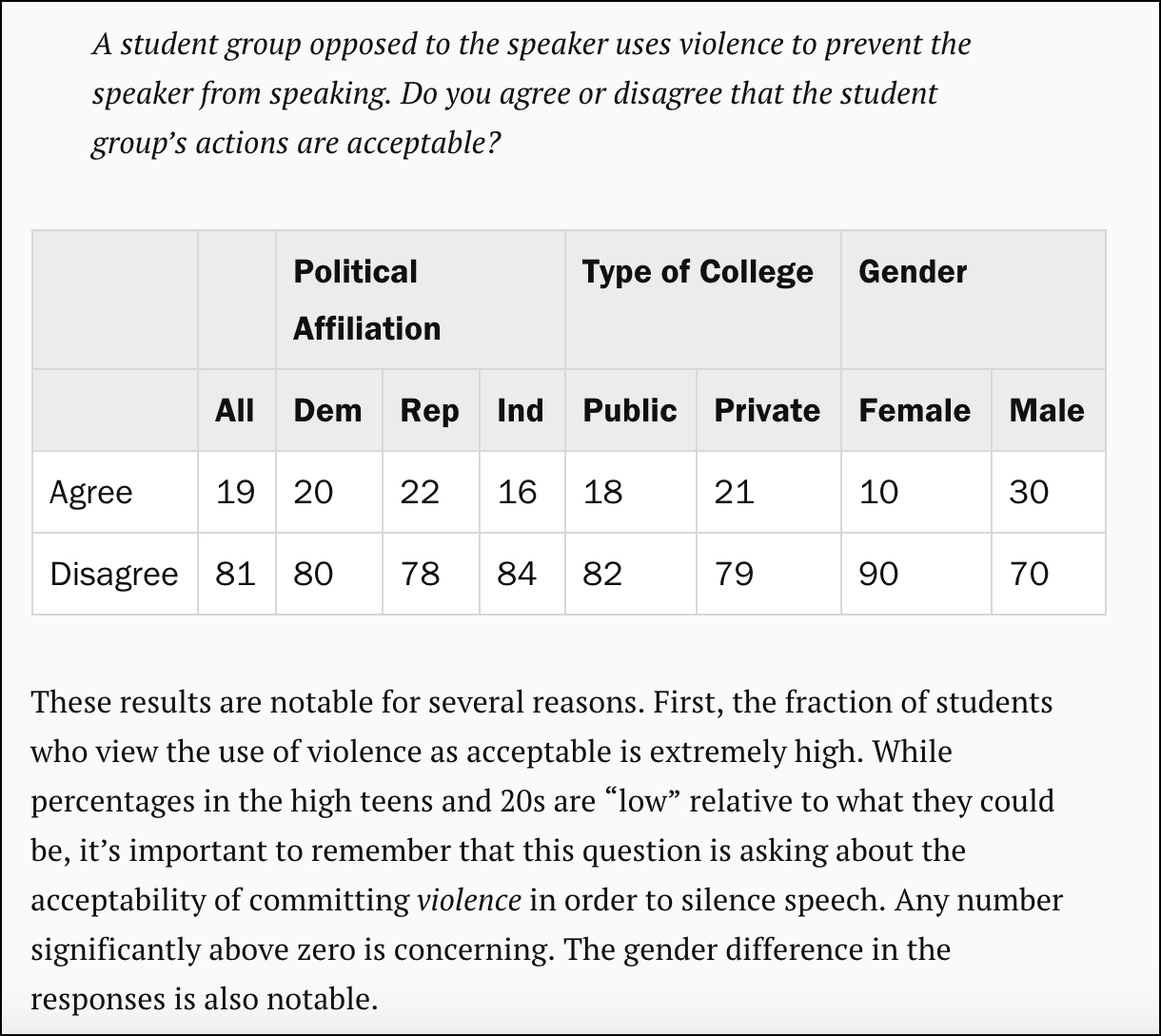
print Print...
(by Robby Soave, Reason .com) – A new study conducted by the Brookings Institution’s John Villasenor, a professor at the University of California-Los Angeles, asked 1,500 students at four-year universities about their views on free speech, and the results are unsettling.
The greatest number, 44 percent answered “no” when asked if the First Amendment protects hate speech. Just 39 percent of students answered correctly and 16 percent answered “don’t know.”
Men were more likely than women to say hate speech was protected (51 percent vs. 31 percent.) And while conservative students are often thought to be more in favor of free speech than their liberal counterparts—at least in the present campus censorship wars—the study suggests this reputation is undeserved. Just 44 percent of self-identified Republicans said that hate speech was protected by the First Amendment, compared with 39 percent of Democrats and 40 percent of independents.
A striking majority of surveyed students—51 percent—thought “shouting so that the audience cannot hear” was a valid tactic for opposing a controversial speaker. Violence was acceptable to 19 percent of respondents.
“Across most categories, and in the aggregate, the majority of students appear to prefer an environment in which their institution is expected to create an environment that shelters them from offensive views,” wrote Villasenor. “The exceptions are among Republicans and Independents, though even in those categories nearly half of the students still expressed a preference for the more sheltered environment.”
It’s not just a matter of preference, however. Given that a majority of students incorrectly say the First Amendment doesn’t protect hate speech, or that they don’t know whether it does, we must also consider sheer ignorance as an explanation for the waves of student-led shut downs on American campuses in recent years.
Teenagers are somehow making it through 12 years of primary education without absorbing the most basic civics lesson: The founding documents of the United States of America zealously protect people who make offensive statements from censorship at the hands of government officials or violent mobs.
Published Sept. 19, 2017 at reason .com. Reprinted here on October 19, 2017, for educational purposes only. May not be reproduced on other websites without permission from Reason.
Questions
1. The purpose of an editorial/commentary is to explain, persuade, warn, criticize, entertain, praise or answer. What do you think is the purpose of Cal Thomas’ editorial? Explain your answer.
2. What is your reaction to each of the following points made by UCLA professor John Villasenor about his survey on college students’ views on free speech?
- “College students’ views of the First Amendment are of profound importance for multiple reasons. First, colleges and universities are places where intellectual debate should flourish. That can only occur if campuses are places where viewpoint diversity is celebrated, and where the First Amendment is honored in practice and not only in theory.”
- “Second, what happens on campuses often foreshadows broader societal trends. Today’s college students are tomorrow’s attorneys, teachers, professors, policymakers, legislators, and judges. If, for example, a large fraction of college students believe, however incorrectly, that offensive speech is unprotected by the First Amendment, that view will inform the decisions they make as they move into positions of increasing authority later in their careers.”
- “College students’ views on the First Amendment are important for another reason as well: Students act as de facto arbiters of free expression on campus. The Supreme Court justices are not standing by at the entrances to public university lecture halls ready to step in if First Amendment rights are curtailed. If a significant percentage of students believe that views they find offensive should be silenced, those views will in fact be silenced.”
- “The survey results establish with data what has been clear anecdotally to anyone who has been observing campus dynamics in recent years: Freedom of expression is deeply imperiled on U.S. campuses. In fact, despite protestations to the contrary (often with statements like “we fully support the First Amendment, but…”), freedom of expression is clearly not, in practice, available on many campuses, including many public campuses that have First Amendment obligations.”
3. Professor Villasenor proposes a solution:
“I think that there is insufficient attention given to the First Amendment, and to constitutional principles generally, in pre-college education. Most middle and high school students are taught, for example, that there is a Bill of Rights. But very few of them receive significant instruction on how key Supreme Court rulings have shaped contemporary interpretations of the First (or other) Amendments.
We don’t need to turn middle and high school students into experts on constitutional law. But we can do a better job of giving them a fuller explanation of the scope of the First Amendment, and the fact that it protects the expression of offensive views. And, I would hope that we can do a better job at convincing current and future college students that the best way to respond to offensive speech is with vigorous debate, or peaceful protest—and not, as many seem to believe, with violence.”
Do you agree with this suggestion? Explain your answer.



